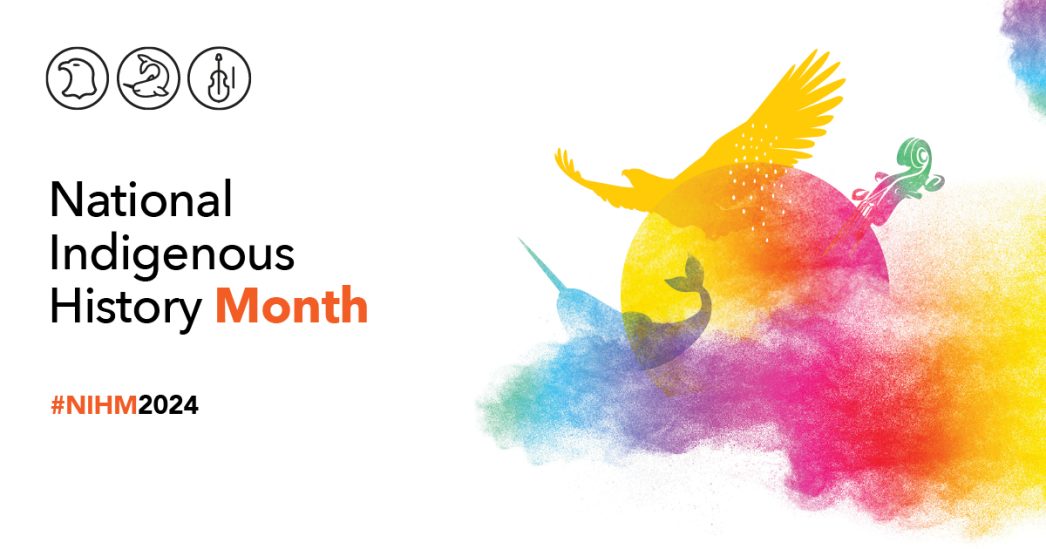This Friday (June 21) is National Indigenous Peoples Day. This is a day to recognize and celebrate the heritage, cultures, and contributions of First Nations, Inuit and Métis peoples.
In this blog post (taken from the CanFASD annual report 2023-2024), Indigenous Liaison, Melissa Tremblay, looks back on the past year and updates readers on the progress made in CanFASD’s commitments to Indigenous partnership, reconciliatory research, and action.
It has been an incredible honor to work with the CanFASD team in my role as Indigenous Liaison. Over the last year, we have taken small and intentional steps toward our commitments to Indigenous partnership, reconciliatory research, and action.
Part of my contribution to CanFASD has involved adding a lens of cultural safety and responsivity to ongoing projects led by other Research Leads. I have enjoyed the privilege of working alongside Drs. Kaitlyn McLachlan and Jacquie Pei on a project intended to increase capacity for identifying and supporting individuals with FASD in criminal-legal contexts. I have also been pleased to infuse a cultural safety perspective into a project exploring substance use treatment in FASD populations, led by CanFASD colleagues. As a branch of this project, we have been examining the alignment between principles of Indigenous substance use treatment and FASD-informed substance use treatment through a qualitative literature review and interviews with service providers. Our research team presented this work at the 2023 Canada FASD Conference. At the conference, we also dedicated a session to listening to Indigenous peoples’ perspectives on FASD assessment, diagnosis, and support. We are grateful to our brilliant Indigenous colleagues for participating in this session by offering their wisdom, and to those allies who listened with humility and respect. This session provided us with an important reminder to prioritize the cultural safety of Indigenous peoples in these spaces so that Indigenous voices and perspectives are meaningfully and authentically amplified.
Weaving Indigenous perspectives into the fabric of FASD research has been a way to take up CanFASD’s commitment to reconciliatory research. As part of this work, we continue to critically reflect on the history of research itself as tool for colonization, along with our responsibility to uphold humility, reciprocity, and self-determination in our research relationships. We will have the opportunity to action these values through funding recently awarded from the University of Calgary One Child Every Child Strategic Catalyst Grant. Over the next three years, this funding will allow us to co-create, together with community partners, a Canadian FASD Indigenous Framework for assessment, diagnosis, and support that is strength- based and centres Indigenous knowledges and cultures.
This past year also saw the third annual Weaving, Beading and Braiding (WBB) gathering, a joint initiative of CanFASD and the FASD Research Australia Center for Research Excellence. I had the joy of co-hosting WBB with the inspiring Nicole Hewlett, providing opportunities for Indigenous peoples from Australia and Canada to share their stories and experiences in a safe and relational forum to collaboratively advance FASD knowledge and understanding. Given that Indigenous peoples in Australia are dealing with the recent defeat of the Indigenous Voice referendum, we have chosen to pause WBB in its current form while we carefully consider how to move forward in respectful ways that honor the realities and voices of Indigenous peoples across both countries.
Our commitment to Indigenous partnership, research, and action is supported by the Indigenous Commitment Committee of the CanFASD Board of Directors. I have been fortunate to serve as a member of this Committee over the last several months. I have a strong sense of hope that, through our work, we can honor our collective responsibilities toward enacting research as a tool for leveraging cultural strengths and reshaping narratives around Indigenous peoples in the world of FASD research.

